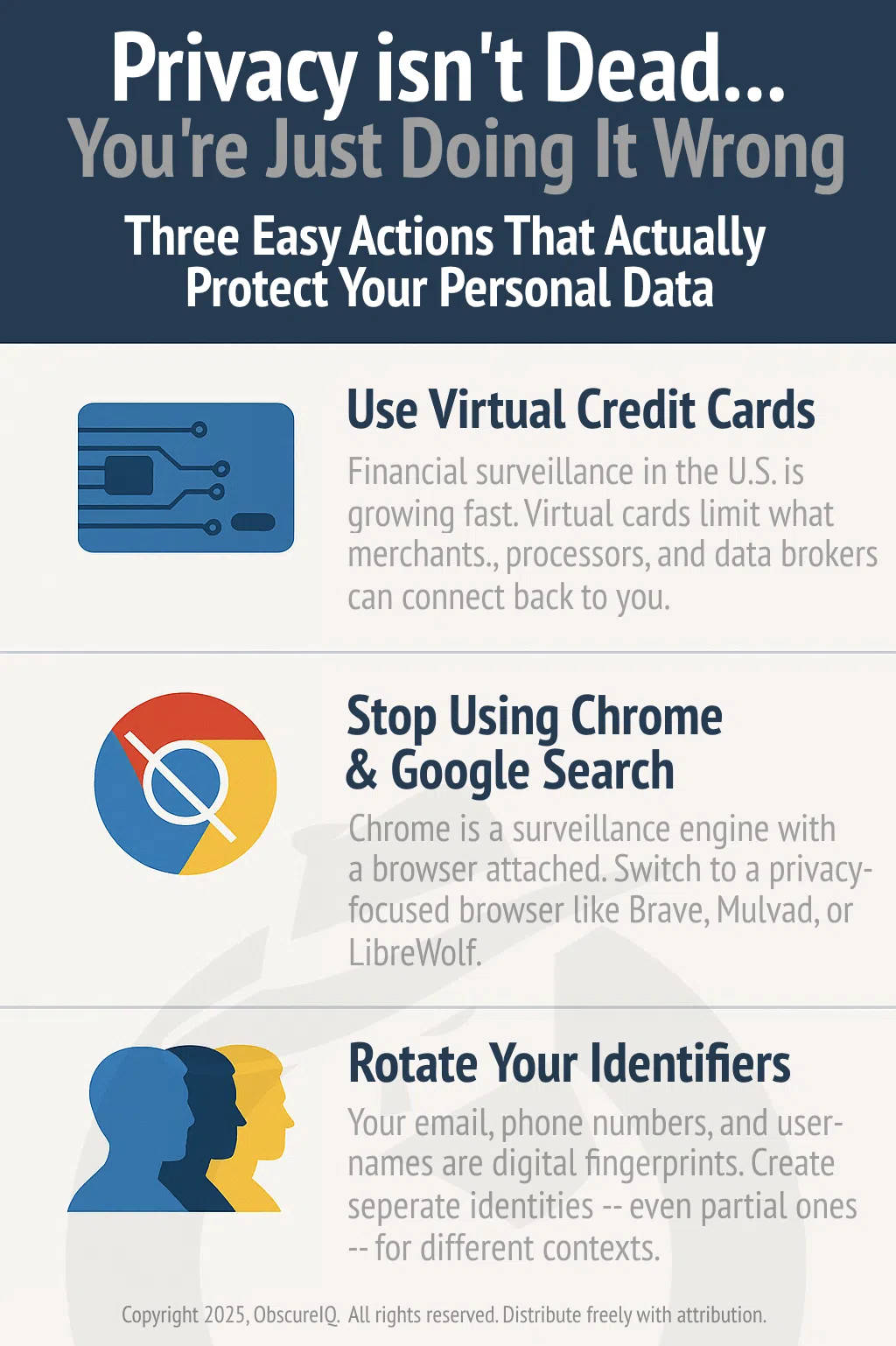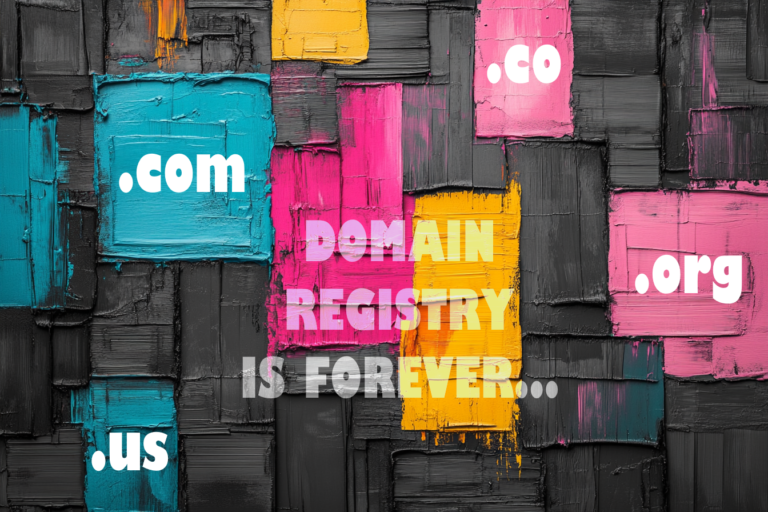🔷 Use Virtual Credit Cards
Financial surveillance in the U.S. is expanding fast.
KYC and AML systems keep growing, and now they’re fueled by AI. Every swipe, tap, or autofill is logged, scored, and resold. It’s not just banks watching. It’s payment processors, ad networks, and fraud analytics vendors — all mapping your spending habits.
Why it matters:
Your payment history is a behavioral fingerprint. It reveals where you live, what you eat, who you support, and when your habits change. That’s valuable to marketers and insurers. It’s also valuable to anyone profiling your lifestyle or political leanings.
What to do:
- Use virtual cards for online purchases.
- Services like Privacy.com, Revolut, and Capital One Eno create disposable numbers that forward charges to your real account.
- You can set limits, lock cards, or delete them after one use.
- Never save real card numbers in merchant accounts.
- If a site gets breached, your virtual card dies with it.
These small changes create financial noise. Enough to disrupt the data trail.
Related blog posts:
🔷 Stop Using Chrome and Google Search
Chrome is a surveillance engine with a browser attached.
Even if Google doesn’t directly “sell” your data, it leaks through the adtech ecosystem. Every time you load a page, your browsing behavior is auctioned in real time to hundreds of bidders through RTB (Real-Time Bidding).
Why it matters:
You don’t see the data brokers bidding on you. They see your device ID, your location, the page you’re visiting, and your ad profile. That’s surveillance capitalism at work — invisible, automated, relentless.
What to do:
- Ditch Chrome and switch to a privacy browser.
- Brave: blocks ads, trackers, and fingerprints by default.
- Mullvad Browser: built for anonymity; pairs with Mullvad VPN.
- LibreWolf: hardened Firefox with telemetry stripped out.
- Avoid extensions that demand excessive permissions.
- Use a privacy search engine like DuckDuckGo, Kagi, or Startpage.
- If you stay on Google for results, try Whoogle or LibreX to proxy your searches anonymously.
Related blog posts:
🔷 Rotate Your Identifiers
Your identifiers are your digital DNA.
Every email, phone number, and username helps data brokers connect dots. Use them long enough and you become trivially easy to profile. Changing them breaks the link.
Why it matters:
Data brokers don’t need your consent. They connect information through “persistence” — identifiers that repeat across platforms. Once they link one identity, they can track you through others: purchases, comments, property records, even airline reservations.
What to do:
Create separate email/phone/username combos for different spheres:
- Personal (friends, family)
- Work / professional
- Commerce / shopping
- Advocacy or public activity
- Use alias tools like SimpleLogin, AnonAddy, or Fastmail Masked Email to generate unique addresses.
- For phone, consider MySudo, Silent Link, or Burner apps.
- Don’t reuse usernames across social platforms. Even small variations matter.
- Keep a local log so you can manage and recover accounts later.
Related blog posts:
Bottom Line
You don’t need to vanish to reclaim privacy. You just need to stop feeding the system.
Start with these three actions. They’ll do more for your data security than a thousand unread settings menus ever will.





